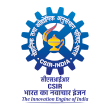Development and Promotion of Non-POPs Alternatives to DDT





The Stockholm Convention on Persistent Organic Pollutants is a global treaty to protect human health and the environment from chemicals that remain intact in the environment for long periods, become widely distributed geographically, accumulate in the fatty tissue of humans and wildlife, and have harmful impacts on human health or on the environment. The Convention was adopted on 22 May 2001 and entered into force on 17 May 2004. Exposure to Persistent Organic Pollutants (POPs) can lead to serious health effects including certain cancers, birth defects, dysfunctional immune and reproductive systems, greater susceptibility to disease and damages to the central and peripheral nervous systems. Given their long-range transport, no one government acting alone can protect its citizens or its environment from POPs.
Being aware that persistent organic pollutants (POPs) pose major and increasing threats to human health and the environment, in May 1995 the Governing Council of United Nations Environmental Program (UNEP) requested in its decision 18/32 that an international assessment process be undertaken of an initial list of 12 POPs and that the Intergovernmental Forum on Chemical Safety (IFCS) develop recommendations on international action for consideration by UNEP Governing Council and World Health Assembly no later than 1997.
In February 1997, the UNEP Governing Council in its decision 19/13C invited UNEP to prepare for and convene intergovernmental negotiating committee (INC), with a mandate to prepare an international legally binding instrument for implementing international action initially beginning with the 12 POPs and requested that the INC establish an expert group to develop criteria and a procedure for identifying additional POPs as candidates for future international action. The INC, after a series of regional consultative meetings completed the negotiations.
Accordingly, The Stockholm Convention on Persistent Organic Pollutants was adopted and opened for signature at a Conference of Plenipotentiaries held from 22 to 23 May 2001 in Stockholm, Sweden. The Convention entered into force on 17 May 2004. As on 31 December 2023, 185 countries have ratified the convention. The Stockholm Convention has established a network of 17 regional and sub-regional centres (SCRCs) to provide technical assistance and to promote the transfer of technology to developing country parties and parties with economies in transition relating to the implementation of their obligations under the Convention. These autonomous institutions operate under the authority of the Conference of the Parties, the decision-making organ of the Convention composed of all the countries party to the Convention. The Regional centers have been established in the institutions that possess relevant expertise and capacity to undertake the task of providing technical assistance and capacity-building to the countries. The SCRCs have been mandated through clear terms of reference and the guidance on technical assistance and the transfer of technologies. A methodology for the evaluation of their performances has been developed, based on specific criteria. These mandates and guidance aim at ensuring an efficient regional delivery of technical assistance in a highly professional and coordinated manner.
Ministry of Environment, Forest and Climate Change (MoEFCC), the focal point of the Stockholm Convention nominated CSIR-NEERI as the Stockholm Convention Regional Centre (SCRC) in India on 17 September 2010. Subsequently, the Conference of Parties in its fifth meeting (COP-5) held during 25-29th April 2011 at Geneva endorsed CSIR-NEERI as SCRC on POPs for Asia Region. SCRC has to serve different parties/countries in the Asia region to help them in their capacity building and transfer of technologies related to POPs and new POPs. Besides India, CSIR-NEERI serves ten countries of Asia region viz. Bangladesh, Maldives, Mongolia, Myanmar, Nepal, Philippines Thailand, Sri Lanka, UAE and Vietnam. The goal of the SCRC is to provide technical assistance for building capacities of the parties of the Asia region in relation to monitoring and assessment of POPs in the environment, transfer of technologies, raise awareness and promote identification and environmentally sound management (ESM) of POPs and POPs contaminated sites in the region. The Centre is also assisting the parties of Asia region in fulfilling their obligations of the Stockholm Convention.
CSIR-NEERI, in the past, implemented several projects funded by international agencies such as UNEP, UNIDO, UNDP etc. SCRC-India assists MoEFCC in matters related to Basel, Rotterdam, and Stockholm (BRS) conventions. CSIR-NEERI has expertise in the area of POPs monitoring in different matrices, with the state-of-the-art analytical instruments such as GC-MS/MS and GC-HR/MS. Accordingly, on the recommendations of MoEFCC, the UNEP components of the project “Development and promotion of non-POPs alternatives to DDT” have been assigned to the Central Pollution Control Board (CPCB) as Executing Agency (EA), which in turn sub-contracted the project to CSIR-NEERI for implementation.
For more information about CSIR-NEERI and SCRC-India, please visit: https://www.neeri.res.in and http://www.neeriathome.neeri.res.in/scrc , respectively.
For the complete list of SCRC and its activities, please visit: https://www.neeri.res.inhttps://chm.pops.int/Partners/RegionalCentres/Overview/tabid/425/Default.aspx